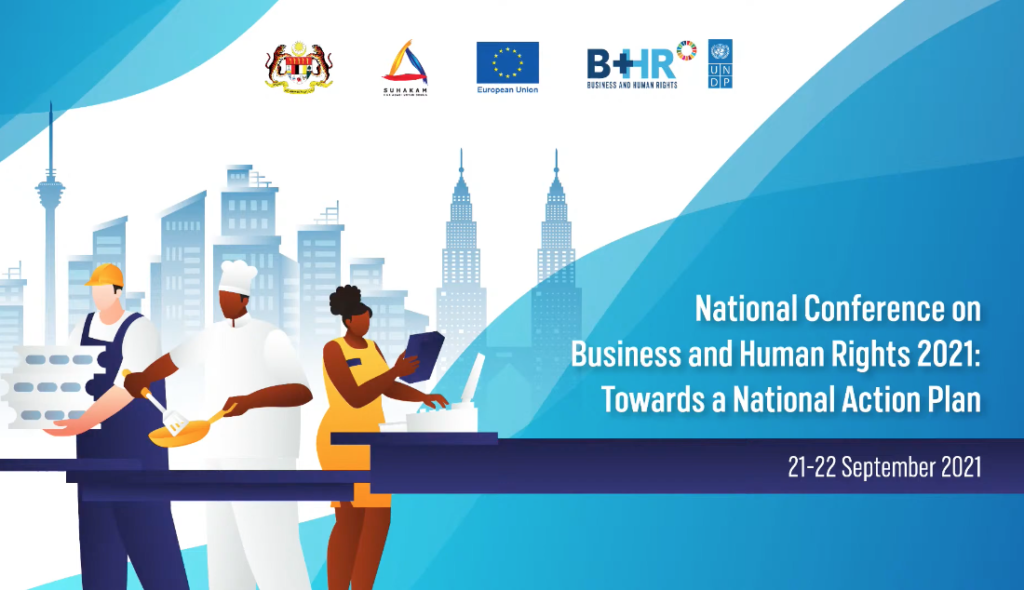
The Malaysian government is leading the process to draft and adopt the country’s National Action Plan on Business and Human Rights (NAPBHR). The process must be transparent, open, holistic, and inclusive. What do these mean in practice? How do we ensure that these principles are adhered to?
We make the following five points.
One, transparency requires that all information be disclosed with minimal exceptions. Access to information is a human right. Often, Malaysians face an information deficit that hinders their ability to make informed decisions. Calls to have a federal freedom of information law have not materialised although the Pakatan Harapan administration had initiated inter-ministerial discussions and civil society consultations to consider it. Being transparent also means that decisions made regarding the NAPBHR are disclosed and explained. It is pertinent that stakeholders understand how decisions affecting them and impacting their rights are made. This sharing of information should be done regularly.
Second, there should be a clearly defined format for consultation with stakeholders during the NAPBHR process. Who will be responsible for coordinating the consultations? The format must facilitate effective consultations on substantive issues and not just for show. Accountability requires that the operational procedures and mechanisms for public interaction are made known to the public. A multi-stakeholder format for periodic consultations at all stages of the NAPBHR process, including its monitoring and evaluation phase, should be established. As a reference point, the Ministry of Foreign Affairs has since 2019 instituted the bi-annual practice of hosting inter-agency consultations with civil society organisations regarding Malaysia’s progress in implementing its Universal Periodic Review (UPR) commitments.
As the government now moves ahead with the National Baseline Assessment (NBA), it is an opportune moment to propose the consultation format for public feedback. We suggest that the consultations include open and public expert-led hearings, plenary conferences, workshops, and calls for written inputs submitted through a dedicated web portal. Germany, Japan and Thailand offer us some good examples.
Third, to be holistic, the NAPBHR should incorporate the perspectives of both the rights-holders and duty-bearers. We will have to accept that there will be differing views and, at times, heated confrontations between businesses, civil society and affected communities. As a population, we are familiar with intense disagreement between different groups in our country over a range of political and social issues. It will not be dissimilar for the NAPBHR. But we know that if we want a better future, we must embrace the fact that our energies are interdependent and can be synergised towards our collective goals. The NAPBHR provides Malaysians with a unique opportunity to enable progress, elevate standards, and accelerate human rights acceptance.
Fourth, inclusivity requires that marginalised, vulnerable, and persecuted communities are heard in the NAPBHR process. It is not sufficient to only invite civil society organisations thinking that they represent the communities when this is not always the case. Though unusual at government-led programmes, it is not far-fetched to have, for example, migrant workers, indigenous peoples, refugees, and LGBTIQ communities at the table to share their stories and experiences. No one should be shunned. The rule of thumb should be to include more people than to exclude them.
Some NAPs dedicate a chapter to “vulnerable groups”, focusing on communities who face discrimination because of their gender, ethnicity, identity, culture, or sexual orientation. Malaysia’s chosen thematic areas for the NAPBHR – labour, governance, and the environment – must therefore incorporate the particular concerns of at-risk communities. Their rights cross-cut the three themes. For instance, when we talk about logging or mining activities, we cannot ignore how it impacts the lives, livelihoods, ancestral lands, and culture of the Orang Asli and Orang Asal. Thus, the environment chapter must not run roughshod over the rights of the indigenous peoples.
Being inclusive also means that special measures should be taken to engage with at-risk communities that may not be easily accessible. Ultimately, the government must increase their participation for greater ownership by right-holders over the NAPBHR.
Finally, while Malaysia has relatively good laws on labour, governance, and the environment compared to other countries in Southeast Asia, there is much room for improvement. These laws are still inadequate in protecting human rights, and we need to aim higher. The NAPBHR must go over and beyond purely voluntary measures. Today’s buzz term among corporations is “ESG” (environmental, social, and governance) compliance. Sustainability is bandied around for businesses to get ahead of their rivals and beat their competitors. The proliferation of ESG and sustainability tools in the market are driven by the need to appease regulators, investors, and consumers. Unfortunately, ESG compliance and sustainability compliance do not equate to human rights compliance, and a distinction between them should be emphasised at all times.
The Malaysian NAPBHR cannot fall below what we already have, but must aspire to fulfil what we ought to have. We should be far-sighted. The process provides the government, companies, and civil society with an additional platform to build their respective capacities while reviewing and monitoring human rights impacts caused by businesses. We should not be shocked into action only when we see from afar a bald patch on Bukit Tabur due to land-clearing works.
A progressive NAPBHR will make our country better. But without genuine adherence to the principles mentioned above, broad public support and buy-in for the plan will be illusory.
This article is adapted from remarks delivered by Edmund on 21 September 2021 at the National Conference on Business and Human Rights 2021: Towards a National Action Plan organised by the Human Rights Commission of Malaysia (SUHAKAM) in collaboration with the Legal Affairs Division of the Prime Minister’s Department (BHEUU) and the United Nations Development Programme (UNDP).
Edmund has been advising clients on business and human rights issues for half of his career. His clients include global and regional trade associations, non-profits, labour rights organisations, trade unions, and multinational companies. As the Representative of Malaysia to the ASEAN Intergovernmental Commission on Human Rights (AICHR) from 2016 to 2018, he promoted the Guiding Principles on Business and Human Rights: Implementing the United Nations “Protect, Respect and Remedy” Framework (UNGPs) among corporations and governments. Edmund also proposed a strategic roadmap to develop the NAPBHR at Malaysia’s 2019 inception programme and was the first to teach business and human rights as an assessed subject in Malaysia to Master of Laws’ students at the University of Malaya. With a team of experts, he is currently working on a human rights compliance toolkit for Southeast Asian companies in the areas of labour and the environment.



